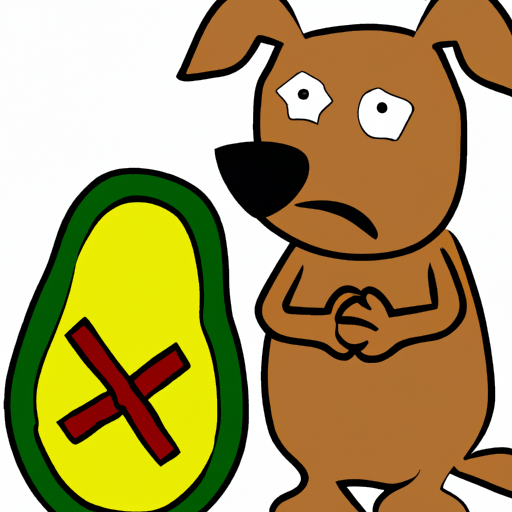“`markdown
Why is Avocado Bad for Dogs?
Introduction
You love your furry friend, don’t you? You try to ensure they get the best diet, full of nutritious elements. As a caregiver, you might have even considered sharing your avocado toast with them. However, have you ever wondered if avocados are safe for your dog?
The Dangerous Compound: Persin
Avocados contain a fungicidal toxin known as persin. While it’s harmless to humans unless they’re allergic, it’s potentially harmful to dogs. In large quantities, persin can cause vomiting, diarrhea, and myocardial damage. Now, you wouldn’t want your beloved pet to go through that, would you?
The Risk of Choking
The avocado pit poses a serious choking hazard to dogs. It’s not just about the size, but also the slippery nature of the pit. It can get lodged in your dog’s throat or even his gastrointestinal tract, leading to a potential emergency situation.
| Avocado Part | Risk to Dogs |
|---|---|
| Flesh | Low |
| Skin | Medium |
| Pit | High |
The High Fat Content
Avocados are high in fat content. While this is beneficial to us humans in moderation, for dogs, it can lead to pancreatitis. This condition is painful and can lead to other health issues in the long run.
Alternatives to Avocado
Now that you know avocados aren’t the best choice for your dog, what can you feed them instead? Here are a few suggestions:
- Apples (without seeds)
- Blueberries
- Carrots
- Cucumbers
Frequently Asked Questions
- Can dogs eat a small amount of avocado? – While the flesh of avocado isn’t toxic to dogs, it’s best to avoid due to the potential risks involved.
- What should I do if my dog ate an avocado pit? – If your dog has ingested an avocado pit, seek immediate veterinary help.
- Are there any dog-friendly fruits? – Yes, fruits like apples, blueberries, bananas, and carrots are safe for dogs. Remember to remove any seeds or pits before feeding them to your dog.
- What are the symptoms if my dog has eaten avocado? – Symptoms may include vomiting, diarrhea, and lack of appetite. If you notice any of these symptoms, contact your vet immediately.
“`



